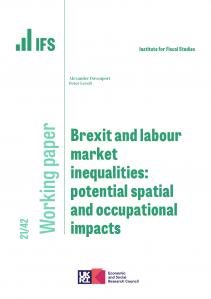With a national roll out of 100 per cent business rates retention unlikely in the next few years, David Phillips from the Institute for Fiscal Studies asks if it is worth looking to the longer term and more radical tax devolution. This article highlights the types of economic activity that business rates retention fails to incentivise, and that could be better incentivised and rewarded by the devolution of other taxes such as a portion of income taxes, a local corporation tax or a local sales tax.
Two years ago, the then Chancellor George Osborne announced councils in England would keep 100 per cent of business rates revenues and general grant funding would be abolished by 2020. The 2017 general election threw these plans into disarray. The government is continuing to pilot the 100 per cent business rates retention scheme (BRRS), but plans for a national roll-out are on hold. Power to cut the tax rate (the ‘multiplier’) also cannot be devolved without primary legislation.
Many in local government are disappointed. But perhaps this pause is an opportunity. Not only to consider the rationale and design of the 100 per cent BRRS but also to ask: should local government have a stake in other taxes too?
The full version of the article can be read on the LGiU: Councillor Magazine website.








